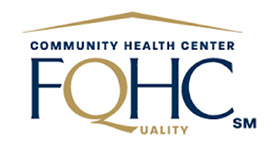News, Access Health Louisiana Primary Care at Pythian, Belle Chasse C.H.C, Kenner C.H.C., South Broad C.H.C, St. Bernard C.H.C., St. Charles – Norco C.H.C, St. Charles Community Health Center – Luling, St. Tammany – Slidell C.H.C, Tangipahoa C.H.C, Washington C.H.C, Woodworth C.H.C.
Louisiana Department of Health confirms Two Greater New Orleans area Measles Cases
April 25, 2025
The Louisiana Department of Health (LDH) has confirmed two cases of measles in the Greater New Orleans area. The first case was reported over Easter weekend and the second case on Monday, April 21st. Both cases involved adults who had recently traveled abroad. LDH’s contact tracing team is credited with discovering the second case.
Doctors say measles is one of the most contagious diseases in the world. It can spread rapidly among individuals who have not received the measles, mumps, rubella (MMR) vaccine. Measles cases can result in hospitalization and, in extreme cases, can lead to death. The measles virus can be particularly dangerous for babies and young children.
- Symptoms generally appear about seven to 14 days after a person is infected.
- Initial measles symptoms include a high fever that may spike as high as 104°, a cough, runny nose, and red, watery eyes.
- Two to three days after symptoms begin, tiny white spots (Koplik spots) may appear inside the mouth.
- Three to five days after symptoms begin, a rash will break out. It usually appears as flat red spots on the face at the hairline and spreads downward to the neck, trunk, arms, legs, and feet.
- After a few days, the fever subsides and the rash fades.
I think I have been EXPOSED to measles. What should I do?
- Immediately call your healthcare provider and let them know that you have been exposed to someone who has measles. Your healthcare provider can determine if you are protected against measles based on your vaccination record, age, or laboratory evidence. Also, please contact your regional epidemiologist with the Louisiana Department of Health, who can provide additional guidance.
- Monitor yourself for symptoms. Be on the lookout for fever and/or an unexplained rash from 7-21 days after exposure potentially occurred, as this is the time when symptoms may develop.
- If you see a provider in person, please notify your provider that you have been exposed to measles before you arrive so that they can make special arrangements to evaluate you, if needed, without putting other patients and medical office staff at risk.
- If you are not immune to measles, the MMR vaccine or a medicine called immune globulin may help reduce your risk of developing measles. Your healthcare provider can advise and monitor you for signs and symptoms of measles.
I think I HAVE measles. What should I do?
- If symptoms develop, stay at home. Avoid school, work, and any large gatherings.
- Immediately call your healthcare provider and let them know about your symptoms so they can tell you what to do next. Your healthcare provider can make special arrangements to evaluate you, if needed, without putting other patients and medical office staff at risk.
- The Louisiana Department of Health can assist healthcare providers in appropriately diagnosing and managing your care.
If you are unsure whether you have been vaccinated, ask your healthcare provider to find out if you need an MMR. You can also check your family’s vaccine status at MyIR.
Source: Louisiana Department of Health

